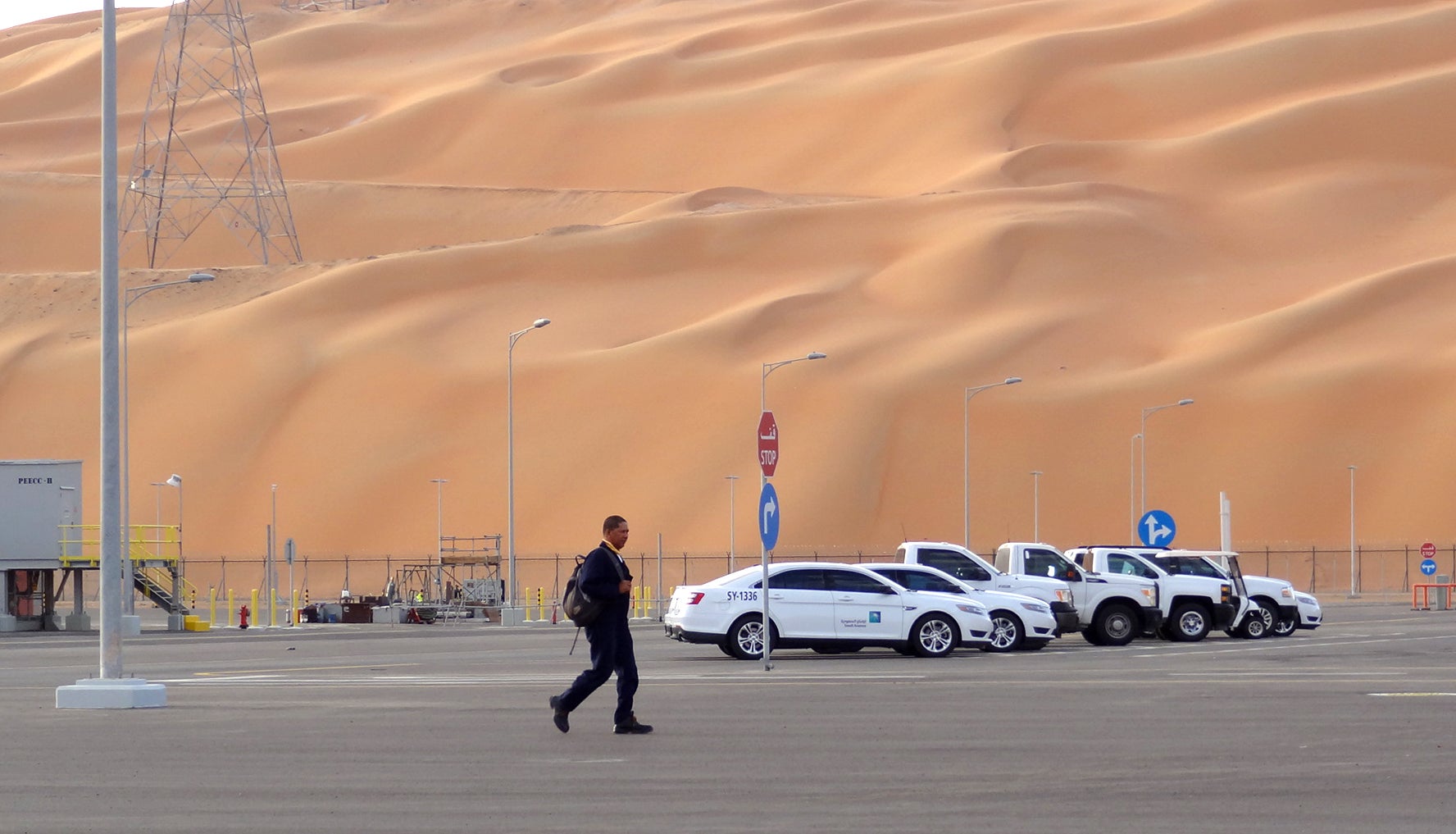Two men die in Saudi Arabian desert’s perilous Empty Quarter after losing GPS signal
Indian man and Sudanese colleague were left stranded in Rub’ al Khali after phone died and car ran out of fuel

Your support helps us to tell the story
From reproductive rights to climate change to Big Tech, The Independent is on the ground when the story is developing. Whether it's investigating the financials of Elon Musk's pro-Trump PAC or producing our latest documentary, 'The A Word', which shines a light on the American women fighting for reproductive rights, we know how important it is to parse out the facts from the messaging.
At such a critical moment in US history, we need reporters on the ground. Your donation allows us to keep sending journalists to speak to both sides of the story.
The Independent is trusted by Americans across the entire political spectrum. And unlike many other quality news outlets, we choose not to lock Americans out of our reporting and analysis with paywalls. We believe quality journalism should be available to everyone, paid for by those who can afford it.
Your support makes all the difference.An Indian man and his Sudanese colleague died from exhaustion and dehydration after getting lost in a Saudi Arabian desert.
Mohammad Shehzad Khan, 27, from the southern Indian state of Telangana and his colleague lost their way in the Rub’ al Khali desert after their GPS signal went off, NDTV reported.
They were reportedly stranded in the desolate and perilous Empty Quarter part of the desert, one of the most dangerous regions in the world.
After Shehzad’s phone battery died and their vehicle ran out of fuel, they were left stranded without food or water. And despite their efforts to survive in the harsh desert conditions, they succumbed to starvation and dehydration.
Their bodies were found on 22 August, four days after they were last heard from, buried under sand dunes beside their vehicle.
Khan and his Sudanese colleague, whose name was not known, had been working in Saudi Arabia for three years with a telecommunications company.
Rub’ al Khali, known as the world’s largest sand desert, stretches over 650km and is notorious for its extreme climate. Annual rainfall in the region is less than 50mm, making it one of the most inhospitable places on Earth.
The desert can be reached mainly by Saudi Arabia’s Highway 10, the world’s longest straight road with an estimated driving time of about two hours, which runs from Haradh to Al Batha near the UAE border. The modern highway, which cuts right through Rub’ al Khali, passes through a landscape that’s one of the planet’s most perilous.
Join our commenting forum
Join thought-provoking conversations, follow other Independent readers and see their replies
Comments